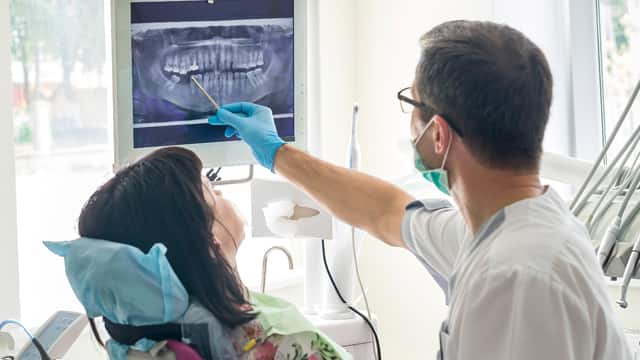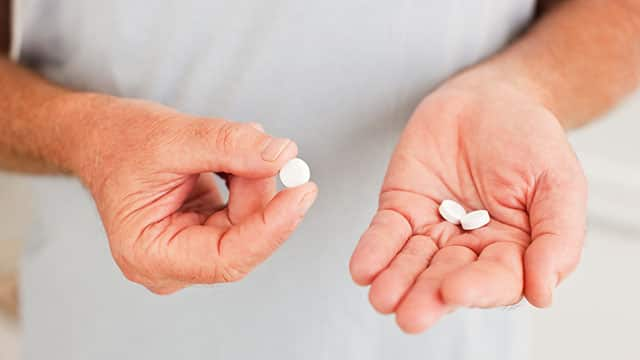Why Can't a Tooth be Saved?
Although saving your teeth is always desired, there are cases when teeth need to be removed. The reasons include trauma, disease, and crowding in the mouth.
When a tooth cannot be repaired using a crown or filling, an extraction may be the best option. Teeth that aren't supported by enough bone because of periodontal disease may also need to be removed as well as infected (abscessed) teeth that don't respond to root canal treatment. It's also not uncommon for an orthodontist to recommend an extraction or two before braces because of crowded teeth. Similarly, wisdom teeth are frequently extracted because they may be impacted or do not have adequate room to fully erupt into the mouth.
Simple Extractions vs. Surgical Extractions
What is a simple extraction? When a tooth is visible above the gumline, and your dentist can easily remove it with forceps, all you need is a simple extraction.
If, however, your dentist needs to remove gum tissue or bone to extract your tooth, you'll likely need a surgical extraction. No worries, though. With today's technology and dental advances, your comfort and safety will be supported. You'll need stitches and will be likely be prescribed pain medication so that you can heal quickly and with the least discomfort.
Reasons for Surgical Extractions
By taking an x-ray and examining your tooth, your dentist can usually determine whether or not you'll need a simple or surgical extraction. There are times when a simple extraction requires a surgical procedure, though. For example, if a tooth breaks off during the procedure, your dental professional may need to do a more extensive surgical procedure.
Other reasons for surgical extractions include:
- Wisdom teeth removal, if they're impacted, and the bone and tissue must be cut
- When removing broken-down teeth
- Taking out root tips or teeth with long-curved roots
- If a tooth or molar broke at the gumline
Post-Extraction Instructions
With surgical extractions, you'll most likely have stitches to care for. Regardless of whether your extraction is simple or surgical, it's always important to closely follow your dentist's post-care instructions. That way, you can set yourself up for a speedy recovery and avoid any complications. Here are some things your dentist will likely recommend you do following the procedure:
- Rest your mouth. Avoid unnecessary talking, eating, and drinking for two hours after the extraction. Also, don't use straws, smoke, or spit while you're recovering.
- Consume liquids and soft foods. Drink plenty of lukewarm or cold fluids after the bleeding subsides. Liquids and soft foods are usually recommended before returning to your regular diet. Your dentist will let you know what diet is recommended for your recovery.
- Avoid brushing the area. Don't rinse or brush your teeth for 12 hours. You can then brush your teeth as you usually would, avoiding the teeth around the extraction site. Your dentist may ask you to rinse with a prescription mouthwash or warm salt water.
- Listen to your dentist about pain meds. Follow your dentist's instructions regarding taking any prescribed pain medications. These medications can help you heal without suffering but have certain risks. Discuss the risks and benefits of using prescription pain medication with your dentist before taking these medications.
- If pain or bleeding continues, contact your dentist right away. Doing so is essential in your healing process and will prevent complications.
So if you need to get your tooth surgically extracted, you have nothing to worry about. With today's modern procedures and anesthesia, the extraction will provide you with better oral health in the long run. Now you know why teeth need to get extracted and why your dentist might need to perform a surgical extraction. After treatment, you may need to care for your stitches and eat soft or liquid foods. Also, make sure you don't brush the healing area. It's always essential to follow your dentist's instructions after a procedure and call them if you have any persistent pain or bleeding. So if your extraction procedure is coming up, you can feel confident and prepared.
Oral Care Center articles are reviewed by an oral health medical professional. This information is for educational purposes only. This content is not intended to be a substitute for professional medical advice, diagnosis or treatment. Always seek the advice of your dentist, physician or other qualified healthcare provider.
ORAL HEALTH QUIZ
What's behind your smile?
Take our Oral Health assessment to get the most from your oral care routine
ORAL HEALTH QUIZ
What's behind your smile?
Take our Oral Health assessment to get the most from your oral care routine















